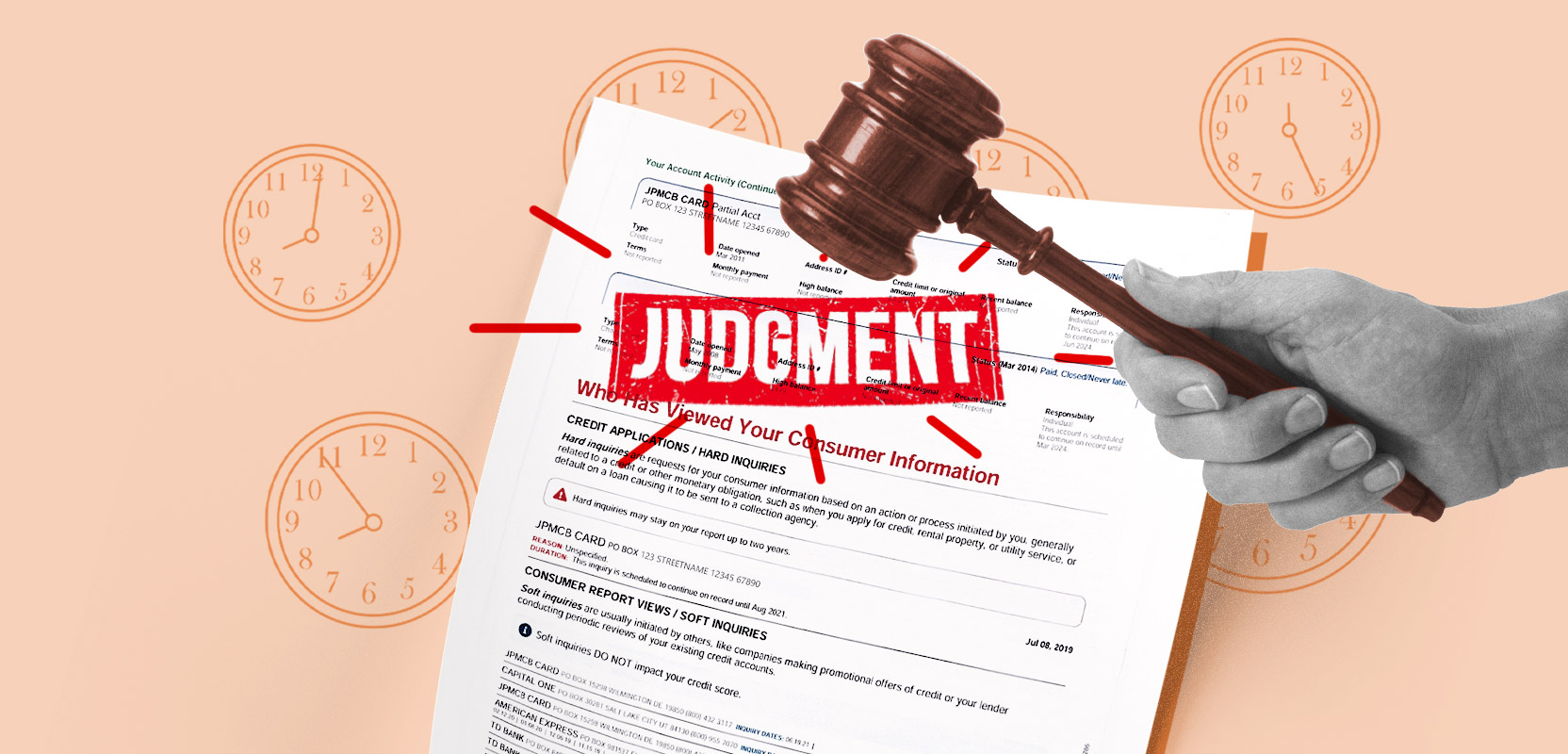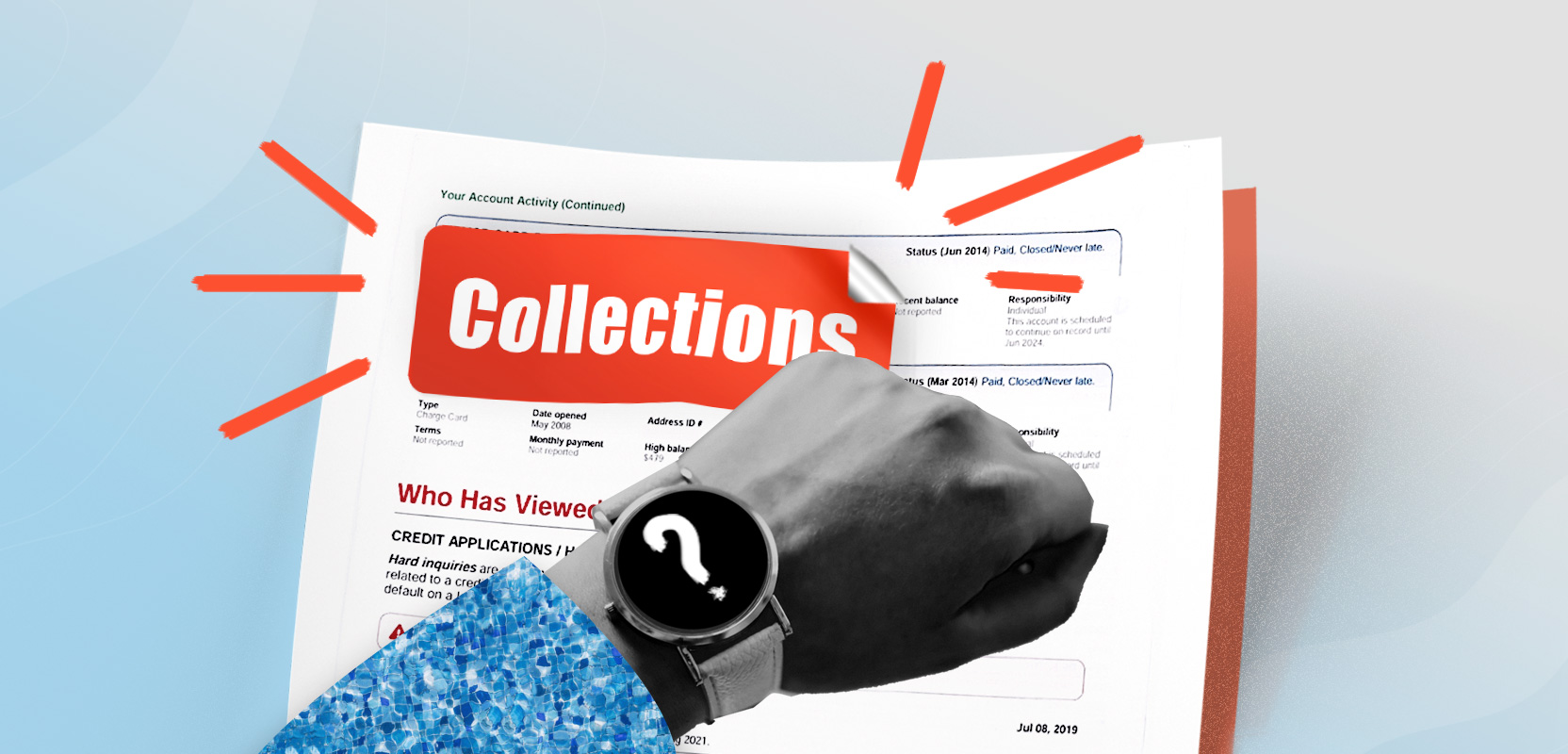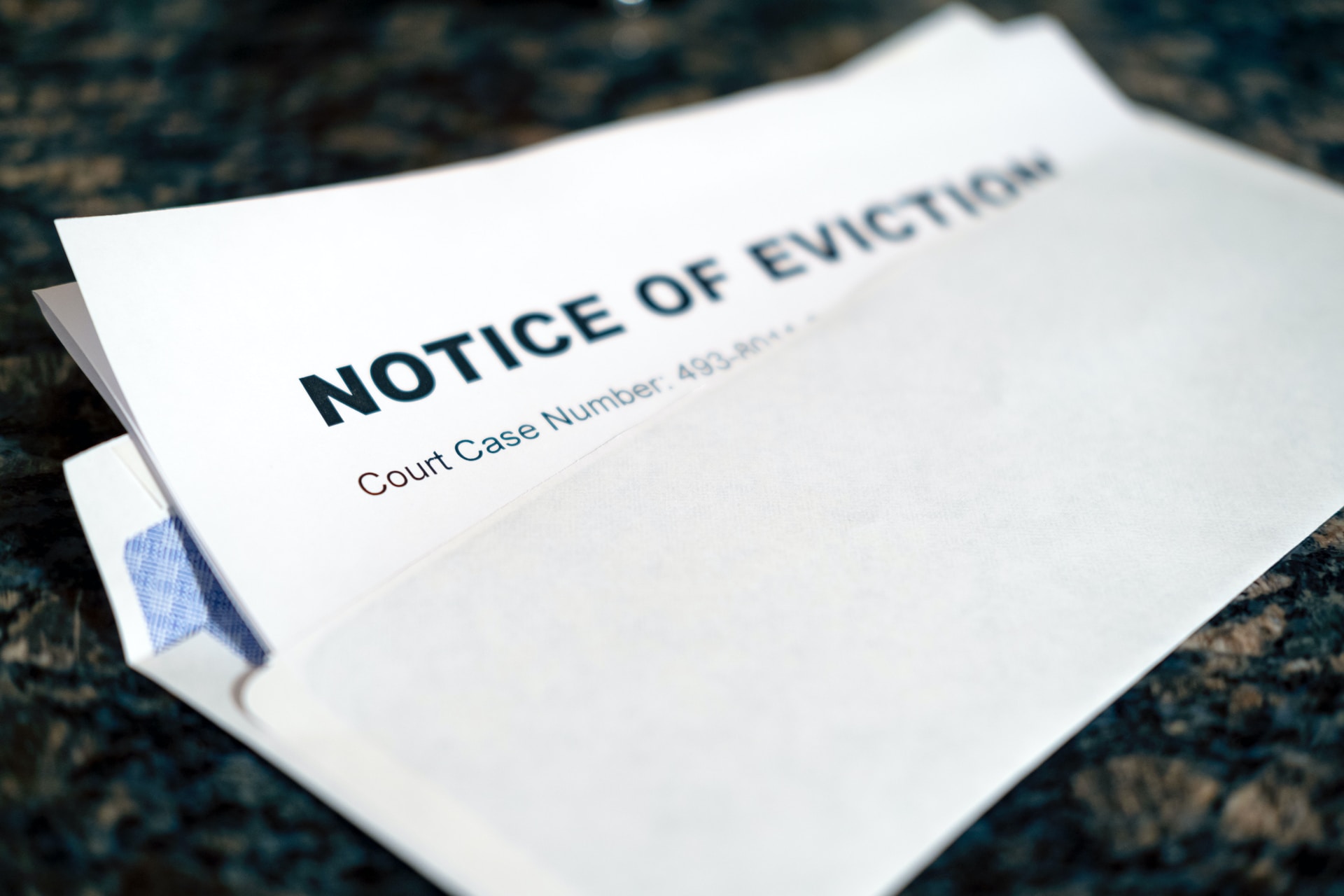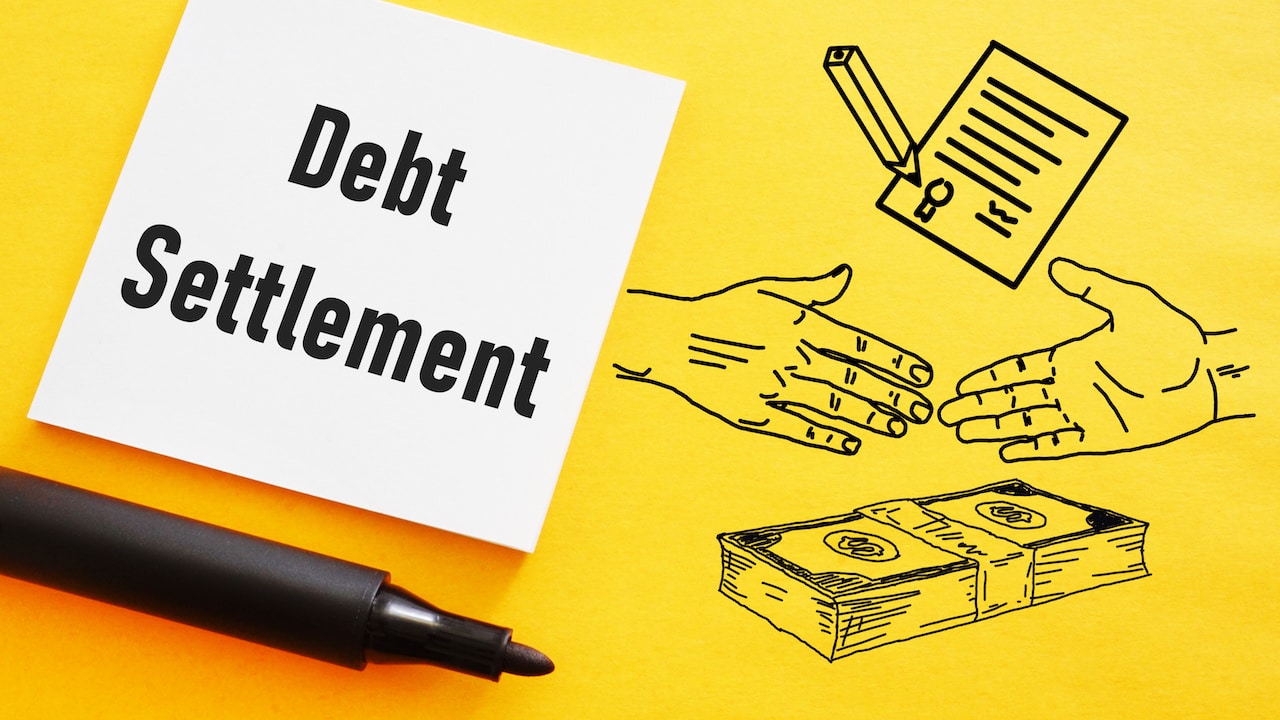Home>Finance>How Long Does A Judgement Stay On A Credit Report


Finance
How Long Does A Judgement Stay On A Credit Report
Published: October 20, 2023
Discover how long a judgment can impact your credit report and learn about the finance implications of this negative mark.
(Many of the links in this article redirect to a specific reviewed product. Your purchase of these products through affiliate links helps to generate commission for LiveWell, at no extra cost. Learn more)
Table of Contents
- Introduction
- Understanding Credit Reports
- What Is a Judgment?
- How Judgments Affect Credit Reports
- How Long Does a Judgment Stay on a Credit Report?
- Factors That Determine the Length of Time
- Impact of Judgments on Credit Scores
- Removing Judgments from Credit Reports
- Steps to Take to Deal with Judgments on Credit Reports
- Conclusion
Introduction
A credit report plays a crucial role in a person’s financial life. It provides a snapshot of their credit history, including details about their borrowing and repayment activity. Lenders, landlords, and even potential employers use credit reports as a tool to assess an individual’s creditworthiness and responsibility. While everyone aims to maintain a pristine credit report, unforeseen circumstances such as legal judgments can impact a person’s credit standing.
In this article, we will explore the topic of judgments on credit reports. We will delve into what judgments are, how they affect credit reports, and, most importantly, how long they stay on credit reports. Additionally, we will discuss the factors that determine the length of time a judgment remains on a credit report and the impact it can have on a person’s credit score. Finally, we will explore the steps individuals can take to remove judgments from their credit reports and mitigate their impact on their financial well-being.
Understanding the intricacies of judgments on credit reports is vital for anyone looking to maintain a strong credit profile. By having a comprehensive knowledge of how judgments work and their implications, individuals can make informed decisions to protect their financial standing and work towards improving their creditworthiness.
Understanding Credit Reports
A credit report is a detailed record of an individual’s borrowing and repayment history. It contains information about their credit accounts, such as credit cards, loans, mortgages, and any other form of credit that has been extended to them. Credit reports also include information about an individual’s payment history, credit limits, outstanding balances, and any negative events that may have occurred, such as late payments or defaults.
Credit reports are compiled by credit reporting agencies (CRAs), which gather data from various sources, including lenders, collection agencies, and public records. The three major CRAs in the United States are Experian, TransUnion, and Equifax. These agencies use this data to calculate an individual’s credit score—a numeric representation of their creditworthiness.
It is important to note that credit reports are not static documents. They are dynamic and can change over time as new information is added or removed. Regularly reviewing one’s credit report is essential to ensure its accuracy and to identify any potential issues that may negatively impact creditworthiness.
Access to credit reports is governed by the Fair Credit Reporting Act (FCRA), which grants individuals the right to request and obtain a free copy of their credit report annually from each of the major CRAs. Monitoring credit reports allows individuals to stay informed about their financial standing and address any discrepancies or errors promptly.
Understanding the contents and significance of credit reports enable individuals to proactively manage their credit health. By having a clear picture of their credit history, individuals can take appropriate steps to improve their creditworthiness, apply for loans or credit cards, or negotiate better terms with lenders.
What Is a Judgment?
A judgment is a legal ruling issued by a court that determines the financial responsibility of one party towards another. It usually occurs in cases involving unpaid debts, such as credit card bills, medical bills, or personal loans. When a creditor files a lawsuit against a debtor for non-payment, and the court decides in favor of the creditor, a judgment is issued.
Once a judgment is obtained, it becomes a public record and can have significant implications for the debtor’s creditworthiness. The judgment serves as a legal confirmation of the debt owed, and it grants the creditor certain rights to collect the outstanding amount, which may include wage garnishment, bank account seizures, or placing a lien on the debtor’s property.
Judgments can be obtained by various types of creditors, including credit card companies, collection agencies, and even individuals who have been owed money. It is important to note that judgments can vary in size and severity, with some judgment amounts being relatively small while others can be substantial.
It is essential to address judgments promptly to avoid the negative consequences they can have on one’s financial and credit standing. Failure to resolve a judgment can result in further legal action, increased financial burdens, and long-lasting damage to credit scores and reports.
How Judgments Affect Credit Reports
Judgments have a significant impact on credit reports and can detrimentally affect an individual’s creditworthiness. When a judgment is recorded, it becomes a part of the public record section of a person’s credit report, making it visible to lenders and other entities that may review the report.
Having a judgment on a credit report is a red flag to lenders as it indicates a history of non-payment and financial irresponsibility. It raises concerns about an individual’s ability to manage their debts and meet their financial obligations. As a result, lenders may hesitate to extend credit or charge higher interest rates to mitigate the risk associated with lending to someone with a judgment on their credit report.
Additionally, a judgment can negatively impact an individual’s credit score. Credit scoring models, such as the widely used FICO score, consider various factors when calculating a credit score, including payment history, amounts owed, length of credit history, new credit accounts, and credit mix. When a judgment is present on a credit report, it signals a significant derogatory event in the payment history category, which can result in a lower credit score.
The exact impact of a judgment on a credit score depends on various factors, such as the overall credit profile of the individual, the size of the judgment, and the recency of the judgment. Generally, a more recent judgment and a larger debt amount can have a more substantial negative impact on the credit score.
It is important to note that the presence of a judgment on a credit report can not only affect the individual’s ability to obtain new credit but also impact existing credit accounts. Lenders may review the credit reports of existing customers periodically and reassess the terms of their current loans or credit limits based on the judgment information. This can result in reduced credit limits or increased interest rates, further straining the individual’s financial situation.
Given the profound impact of judgments on credit reports, it is crucial to address them promptly and take steps to mitigate their impact on creditworthiness. By understanding how judgments affect credit reports, individuals can be better prepared to take action and protect their financial well-being.
How Long Does a Judgment Stay on a Credit Report?
The length of time a judgment stays on a credit report can vary depending on several factors, including the type of judgment and the jurisdiction in which it was issued. In general, however, a judgment will typically remain on a credit report for a period of seven years from the date it was filed.
The seven-year timeframe is determined by the Fair Credit Reporting Act (FCRA), which governs the reporting of information on consumer credit reports in the United States. The FCRA sets limits on how long negative information, including judgments, can be reported by credit reporting agencies.
It is important to note that the seven-year reporting period starts from the date the judgment was filed, not from the date it was originally obtained. This means that if a judgment was obtained several years before it was filed with the court, the seven-year reporting period begins from the filing date, not the date the judgment was initially entered.
It is worth mentioning that some states have their own laws regarding how long a judgment can remain on a credit report, and in some cases, these laws may extend the reporting period beyond the seven-year timeframe established by the FCRA. Therefore, it is advisable to consult local laws or seek legal advice to understand the specific rules regarding judgment reporting in a particular jurisdiction.
Despite the seven-year reporting period, there are instances where judgments can remain on credit reports for longer periods. If a judgment is renewed by the creditor, either through a court order or by initiating legal action before the expiration of the initial seven-year period, it can potentially remain on a credit report for an extended period of time.
It is also important to note that while the judgment itself may be removed from the credit report after the seven-year period, the associated debt may still be legally enforceable. Creditors can continue to pursue collection efforts or take legal action to recover the debt even after the judgment is no longer being reported on the credit report.
Understanding the duration of judgment reporting on credit reports can help individuals plan and take appropriate actions to improve their creditworthiness over time. By addressing the underlying issues that led to the judgment and taking steps to improve their financial situation, individuals can work towards rebuilding their credit and mitigating the long-term effects of a judgment on their credit history.
Factors That Determine the Length of Time
While the Fair Credit Reporting Act (FCRA) establishes the general guideline of a seven-year reporting period for judgments on credit reports, there are certain factors that can influence the length of time a judgment remains on a credit report. These factors include:
- State Laws: Some states have laws that extend the reporting period for judgments beyond the seven years mandated by the FCRA. These state-specific laws can vary, and it is essential to be aware of the laws in the jurisdiction where the judgment was issued.
- Judgment Renewal: If a creditor takes legal action to renew a judgment before the initial seven-year reporting period elapses, the judgment can remain on a credit report for an extended period. Renewal processes can vary by jurisdiction, and creditors must follow the appropriate legal procedures to extend the reporting of the judgment.
- Paid vs. Unpaid Judgments: Generally, judgments that remain unpaid can have a more significant impact on credit reports and stay on them for the full seven-year reporting period. Paid judgments may still appear on credit reports, but their impact on creditworthiness may diminish over time.
- Date of Filing: The starting point of the seven-year reporting period is the date the judgment is filed with the court, not the date it was initially entered. If there is a significant time gap between the judgment being obtained and when it is officially filed, the seven-year reporting period begins from the filing date.
It is important to note that while these factors can influence the length of time a judgment remains on a credit report, it is ultimately the responsibility of credit reporting agencies to accurately report and update the information in accordance with legal requirements.
Understanding the factors that determine the length of time a judgment stays on a credit report can help individuals anticipate the impact of a judgment on their creditworthiness. By staying informed about state laws, monitoring the status of judgments, and taking steps to address outstanding debts, individuals can work towards improving their credit profiles and mitigating the negative effects of judgments on their financial health.
Impact of Judgments on Credit Scores
Judgments can have a significant impact on credit scores, which are numerical representations of an individual’s creditworthiness. When a judgment appears on a credit report, it is considered a derogatory mark and can lower an individual’s credit score.
The exact impact of a judgment on a credit score varies depending on multiple factors, including the overall credit profile and the scoring model being used. However, in general, a judgment is viewed as a serious negative event in the payment history category, which can carry significant weight in credit scoring algorithms.
A judgment can result in a substantial decrease in an individual’s credit score. The higher the credit score was initially, the more significant the impact may be. The presence of a judgment signals to lenders that the individual has failed to pay a debt, potentially indicating a higher credit risk.
It is important to note that the impact of a judgment on a credit score is not permanent. As time passes and the judgment ages, its negative impact on the credit score may gradually diminish. However, it is crucial to address the underlying issues that led to the judgment and take steps to resolve the debt and improve creditworthiness to see long-term improvements in credit scores.
In addition to the direct impact on credit scores, judgments can also influence how lenders evaluate loan applications or determine lending terms. Lenders may perceive individuals with a judgment on their credit report as risky borrowers, resulting in higher interest rates or even loan denials.
It is worth mentioning that the impact of a judgment on a credit score may vary depending on the scoring model used. FICO scores, which are widely used by lenders, heavily consider payment history. Therefore, a judgment can significantly impact a FICO score. It is essential to be mindful of the specific factors that affect credit scores and to monitor credit reports regularly to understand the potential impact of judgments.
Though judgments can have a negative impact on credit scores, it is possible to recover and rebuild creditworthiness over time. By addressing unpaid judgments, paying off outstanding debts, and demonstrating responsible credit behavior moving forward, individuals can gradually improve their credit scores and mitigate the long-term effects of judgments on their creditworthiness.
Removing Judgments from Credit Reports
Removing judgments from credit reports is a challenging process, but it is possible under certain circumstances. Here are a few options individuals can explore to remove judgments from their credit reports:
- Satisfy the judgment: The most straightforward way to remove a judgment from a credit report is to satisfy the debt by paying it off. Once the judgment is paid in full, individuals can request a satisfaction of judgment document from the creditor or the court, which can then be submitted to the credit reporting agencies. It may take some time for the judgment to be updated or removed from the credit report, so it is important to monitor the report regularly to ensure the changes are reflected.
- Negotiate a settlement: In some cases, individuals may be able to negotiate a settlement agreement with the creditor. This involves reaching an agreement to pay a reduced amount or setting up a payment plan to satisfy the debt. Once the settlement is reached, individuals can request that the creditor or the court provide a satisfaction of judgment document, which can be submitted to the credit reporting agencies for removal or update of the judgment on the credit report.
- Dispute inaccuracies: It is important to review the credit report carefully for any inaccuracies or errors related to the judgment. If there are any discrepancies, individuals can file a dispute with the credit reporting agencies and provide supporting documentation to prove the inaccuracies. The agencies have a legal obligation to investigate the dispute and, if found to be invalid, remove or correct the information on the credit report.
- Seek legal assistance: In complex cases or situations where individuals believe their rights have been violated, seeking legal assistance may be necessary. An experienced attorney can provide guidance on the best course of action to remove the judgment, including potentially challenging the validity of the judgment or exploring legal remedies available under state or federal laws.
It is important to note that the process of removing judgments from credit reports can take time and persistence. It is advisable to keep copies of all correspondence and documentation related to the removal process and to follow up regularly with the credit reporting agencies to ensure that the changes are implemented correctly.
Moreover, it is crucial to continue practicing responsible credit behavior moving forward, as this will contribute to rebuilding creditworthiness and outweigh the negative impact of a past judgment. Maintaining a consistent payment history, keeping credit utilization low, and applying for new credit responsibly can contribute to improving credit scores and demonstrating creditworthiness to future lenders.
Steps to Take to Deal with Judgments on Credit Reports
Dealing with judgments on credit reports can be overwhelming, but taking proactive steps can help individuals navigate the process more effectively. Here are some essential steps to consider:
- Review the judgment: Start by carefully reviewing the details of the judgment, including the debt amount, the dates involved, and any supporting documentation. Understanding the specifics of the judgment will enable individuals to take appropriate action.
- Verify the accuracy: Verify the accuracy of the judgment information by comparing it to your own records. Check for any discrepancies or errors that may be present on the credit report. If there are any inaccuracies, it is crucial to gather supporting documentation and file a dispute with the credit reporting agencies.
- Satisfy the judgment: If the judgment is valid and accurate, consider satisfying the debt by paying it off. Contact the creditor or collection agency responsible for the judgment to discuss payment options. Once the debt is paid in full, request a satisfaction of judgment document, which can be sent to the credit reporting agencies to update or remove the judgment from the credit report.
- Negotiate a settlement: If paying off the entire debt is not feasible, consider negotiating a settlement agreement with the creditor or collection agency. In some cases, creditors may be willing to accept a reduced amount or set up a payment plan. Ensure that any settlement agreement reached is documented in writing before proceeding with the payment.
- Monitor the credit report: Regularly monitor the credit report to ensure that any changes or updates related to the judgment are accurately reflected. It may take some time for the credit reporting agencies to update the information, so maintaining vigilance and following up as necessary is crucial.
- File a dispute: If there are any inaccuracies or errors related to the judgment on the credit report, file a dispute with the credit reporting agencies. Provide supporting documentation to prove the inaccuracies and request that the agencies investigate and correct the information if found to be invalid.
- Seek professional assistance: If the process becomes complex or legal assistance is needed, consider consulting with an attorney who specializes in credit and debt-related matters. They can provide guidance on the best course of action and ensure that individual rights are protected throughout the process.
It is important to remain patient and persistent when dealing with judgments on credit reports. Resolving the situation may take time, but taking the necessary steps and addressing the underlying issues will contribute to improving creditworthiness over time.
Furthermore, it is vital to maintain responsible credit behavior moving forward. Timely payments, responsible credit utilization, and avoiding additional negative events will help rebuild credit and demonstrate creditors that past judgments do not define one’s ability to manage credit responsibly.
Conclusion
Dealing with judgments on credit reports can be a challenging and complex process, but by understanding the impact of judgments and taking appropriate steps, individuals can mitigate their effects and work towards rebuilding their creditworthiness.
Judgments have a significant impact on credit reports and credit scores. They can signal a history of non-payment and financial irresponsibility, making it difficult to secure new credit or obtain favorable lending terms. However, it is important to remember that judgments are not permanent and can be removed or their impact minimized with the right approach.
To effectively deal with judgments on credit reports, individuals should review the details of the judgment, verify its accuracy, and consider options such as satisfying the debt or negotiating a settlement. Regularly monitoring the credit report and filing disputes for any inaccuracies is crucial. Seeking professional assistance may also be necessary, especially in complex cases or if legal rights have been violated.
It is essential to practice responsible credit behavior moving forward. Consistently making payments on time, keeping credit utilization low, and avoiding new negative events will contribute to rebuilding creditworthiness and demonstrating financial responsibility to future lenders.
Remember, while judgments on credit reports can present challenges, it is possible to overcome their impact. By taking the necessary steps and remaining dedicated to improving credit health, individuals can regain control of their financial future and achieve their goals.














